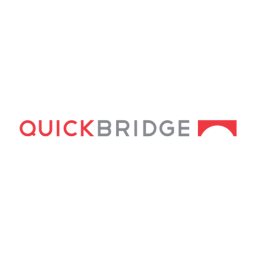There are many perks to being an independent contractor. Many have the freedom to make their own work hours, select projects that are most appealing to them and manage operations without a ton of input. Still, some face a major downside – financial issues that come with being an independent contractor. Fortunately, loan options are available to help you overcome the challenge if you encounter cash flow issues.
Read on for more insight into who’s considered an independent contractor, what common financial woes they face, and where to find viable loan options to keep operations running smoothly.
Best Business Loans Lenders

Discover everything you need to know about BriteCap with our in-depth review. Get insights into loan options, benefits, and reviews.

Get Your Business Funded Fast. Compare Top Online Lenders. 1+ Years in Business & $200K+ Annual Revenue Required. See Loan Offers.

How do QuickBridge small business loans work? Discover if the business lender is the right one for your company.

National Funding offers small business lending solutions with personal service and tailored loan options to achieve your business goals.

Term Loan and Line of Credit. Requirements: $100K+ Annual Revenue, 1+ Years In Business, 625+ Credit Score. 2 Minutes Fast Application.
Who Is Considered an Independent Contractor?
Independent contractors are non-employees, self-employed workers, contract workers, individuals with sole proprietorships or gig economy workers who perform contract work for companies. But, instead of receiving hourly or salary pay and benefits, compensation is granted to these self-employed business owners by the project or based on a set number of hours they agree to work on a weekly or monthly basis.
When it’s time to file taxes, independent contractors receive 1099 from the company, including total earnings for the year (assuming they earned more than $600). Since the employer does not withhold taxes from these payments, the independent contractor must pay their own taxes to the Internal Revenue Service (IRS) and their state tax authority (if applicable).
Independent Contractors vs. Self-Employed Individuals
Independent contractors and sole proprietors are considered self-employed people since they aren’t technically employees. However, self-employed individuals aren’t always classified as independent contractors since they don’t have to be hired by a company to generate income. This scenario is quite common for individuals operating eCommerce businesses or selling their products through consignment arrangements.
Financial Issues of Independent Contractors
It’s not uncommon for employees to transition to self-employment to enjoy the perks that are afforded to independent contractors. However, there are also financial drawbacks to consider.
Income Is Not Guaranteed
When you’re hired as an hourly or salaried employee, you’re guaranteed to receive compensation for a set amount each week, biweekly or monthly. Unfortunately, independent contractors don’t have this luxury, as pay is based on the work they perform. Earnings could also fluctuate from month to month, depending on their client’s needs, the state of the industry they work in, and economic conditions. Consequently, independent contractors are more likely to face cash flow challenges than traditional employees.
Best Business Loans Lenders

Discover everything you need to know about BriteCap with our in-depth review. Get insights into loan options, benefits, and reviews.

Get Your Business Funded Fast. Compare Top Online Lenders. 1+ Years in Business & $200K+ Annual Revenue Required. See Loan Offers.

How do QuickBridge small business loans work? Discover if the business lender is the right one for your company.

National Funding offers small business lending solutions with personal service and tailored loan options to achieve your business goals.

Term Loan and Line of Credit. Requirements: $100K+ Annual Revenue, 1+ Years In Business, 625+ Credit Score. 2 Minutes Fast Application.
Business Expenses Out of Own Pockets
Independent contractors are also responsible for covering all their business expenses out of pocket. There’s no health insurance subsidy, and if you need office space, supplies, or other materials, it’s up to you to figure out how to cover the costs. While you can pass the expenses you incur on to your clients, you’ll have to front the funds until you complete the project or meet the preset milestone, and they compensate you for your work.
Lack Of Benefits
As mentioned above, independent contractors aren’t eligible for employee benefits like retirement contributions, health insurance, dental coverage, sick leave, and vacation leave, just to name a few. Therefore, it’s up to you to budget earnings wisely to ensure you can afford to pay health insurance and dental insurance premiums, take off as needed, and retire comfortably.
Job Security
Companies use independent contractors as needed, and there’s no way to know if they’ll have work for you over an extended period. Furthermore, companies have the legal right to cancel a contract at any time as long as the conditions of the agreement are met.
Can Independent Contractors Get Loans?
Yes, it’s possible to get an independent contractor loan, whether it’s to fill funding gaps or make the necessary investments to earn more.
What Types of Loans Are Available to Independent Contractors
Independent contractors can choose from small business loans, business lines of credit, SBA loans, merchant cash advances or equipment financing to access capital.
Small Business Loans
Also referred to as term loans, small business loans are the most common form of financing. You’ll receive the loan proceeds in a lump sum and make equal monthly principal and interest payments over a set period.
There are two types of small business loans – unsecured and secured. The latter requires you to put up collateral that the lender will seize if you default on the loan payments. Another drawback of traditional small business loans is the borrowing costs, particularly if your credit score is on the lower end or you don’t have a ton of business experience under your belt.
Still, this business loan is an ideal way to get the working capital you need as an independent contractor, and it’s possible that you can tap into a higher loan amount than you would with other options. Plus, some lenders offer fast decisions and funding times so you can get back on track financially.
Best Business Loans Lenders

Discover everything you need to know about BriteCap with our in-depth review. Get insights into loan options, benefits, and reviews.

Get Your Business Funded Fast. Compare Top Online Lenders. 1+ Years in Business & $200K+ Annual Revenue Required. See Loan Offers.

How do QuickBridge small business loans work? Discover if the business lender is the right one for your company.

National Funding offers small business lending solutions with personal service and tailored loan options to achieve your business goals.

Term Loan and Line of Credit. Requirements: $100K+ Annual Revenue, 1+ Years In Business, 625+ Credit Score. 2 Minutes Fast Application.
Business Lines of Credit
A business line of credit gives you far more flexibility than you’ll get with a standard small business loan. For starters, you’re free to pull funds on an as-needed basis during the draw period. Plus, you’ll only pay interest on the amount you borrow, which can help keep borrowing costs low.
But there are downsides. Some lenders charge you draw fees each time you request funds, and there are maintenance fees that come along with having a business line of credit. However, these costs may be worth it as you’ll have peace of mind knowing you have access to a pool of cash in times when you need it most.
You should also know that business lines of credit are unsecured, which means there are no collateral requirements. Furthermore, you’ll likely need to have a certain number of months or years in business and a sizable amount of gross annual revenue to qualify.
Small Business Administration (SBA) Loans
As the name implies, SBA loans are backed by the U.S. Small Business Administration. They are available through SBA-approved banks and financial institutions, and the loan amounts, terms and interest rates vary by the product you select.
The primary benefit is the accessibility of SBA loans to underserved applicants, especially for borrowers who’ve been turned away elsewhere. Plus, you’ll enjoy competitive financing terms and extended repayment periods.
However, you can expect a lengthy process filled with twists and turns when you apply for an SBA loan. Another major drawback is the lengthy funding timeline. When you apply, expect to play the waiting game for several weeks or even months before you hear back from the lender to know if your application is approved or denied. And if you are approved, you’ll likely have to wait some more to receive the loan proceeds.
But if you have the patience and want a small business loan with competitive terms, an SBA loan could be ideal.
Best Business Loans Lenders

Discover everything you need to know about BriteCap with our in-depth review. Get insights into loan options, benefits, and reviews.

Get Your Business Funded Fast. Compare Top Online Lenders. 1+ Years in Business & $200K+ Annual Revenue Required. See Loan Offers.

How do QuickBridge small business loans work? Discover if the business lender is the right one for your company.

National Funding offers small business lending solutions with personal service and tailored loan options to achieve your business goals.

Term Loan and Line of Credit. Requirements: $100K+ Annual Revenue, 1+ Years In Business, 625+ Credit Score. 2 Minutes Fast Application.
Merchant Cash Advances
A merchant cash advance lets you borrow against your future sales. The lender will advance funds to you now and collect a portion of what you owe from each sale you make.
It’s an unsecured form of business financing, so you don’t need collateral to get approved. Plus, you have the option to set the payment amount, which is good news if you’re in an industry where the sales volume fluctuates.
Keep in mind that the borrowing costs are rather steep with this form of funding.
Equipment Financing
Do you use equipment in your line of business? If you’re tired of renting equipment due to the costs you’re incurring, or if the time has come to make some upgrades, equipment financing may be suitable.
It refers to a loan on equipment to help you acquire the tools you need. In most instances, the loan term is based on the equipment’s anticipated useful life. A down payment may be required to secure financing, but perfect credit may not be required.
Instead, the lender will generally use the equipment as collateral and take possession of it to recoup its losses if you default on the monthly loan payments. Keep in mind that a solid credit rating and business financial status means you’ll likely qualify for the best terms on equipment financing. But regardless of your financial status, equipment financing is worth considering to acquire the tools you need instead of renting will add value to your business and boost profits.
How Can Independent Contractors Get Loans?
Independent contractors can secure loans through SBA-approved lenders, traditional banks, credit unions, and online lenders. Each lender has its own qualification criteria, but you could find that online options are generally more flexible.
Best Business Loans Lenders

Discover everything you need to know about BriteCap with our in-depth review. Get insights into loan options, benefits, and reviews.

Get Your Business Funded Fast. Compare Top Online Lenders. 1+ Years in Business & $200K+ Annual Revenue Required. See Loan Offers.

How do QuickBridge small business loans work? Discover if the business lender is the right one for your company.

National Funding offers small business lending solutions with personal service and tailored loan options to achieve your business goals.

Term Loan and Line of Credit. Requirements: $100K+ Annual Revenue, 1+ Years In Business, 625+ Credit Score. 2 Minutes Fast Application.







